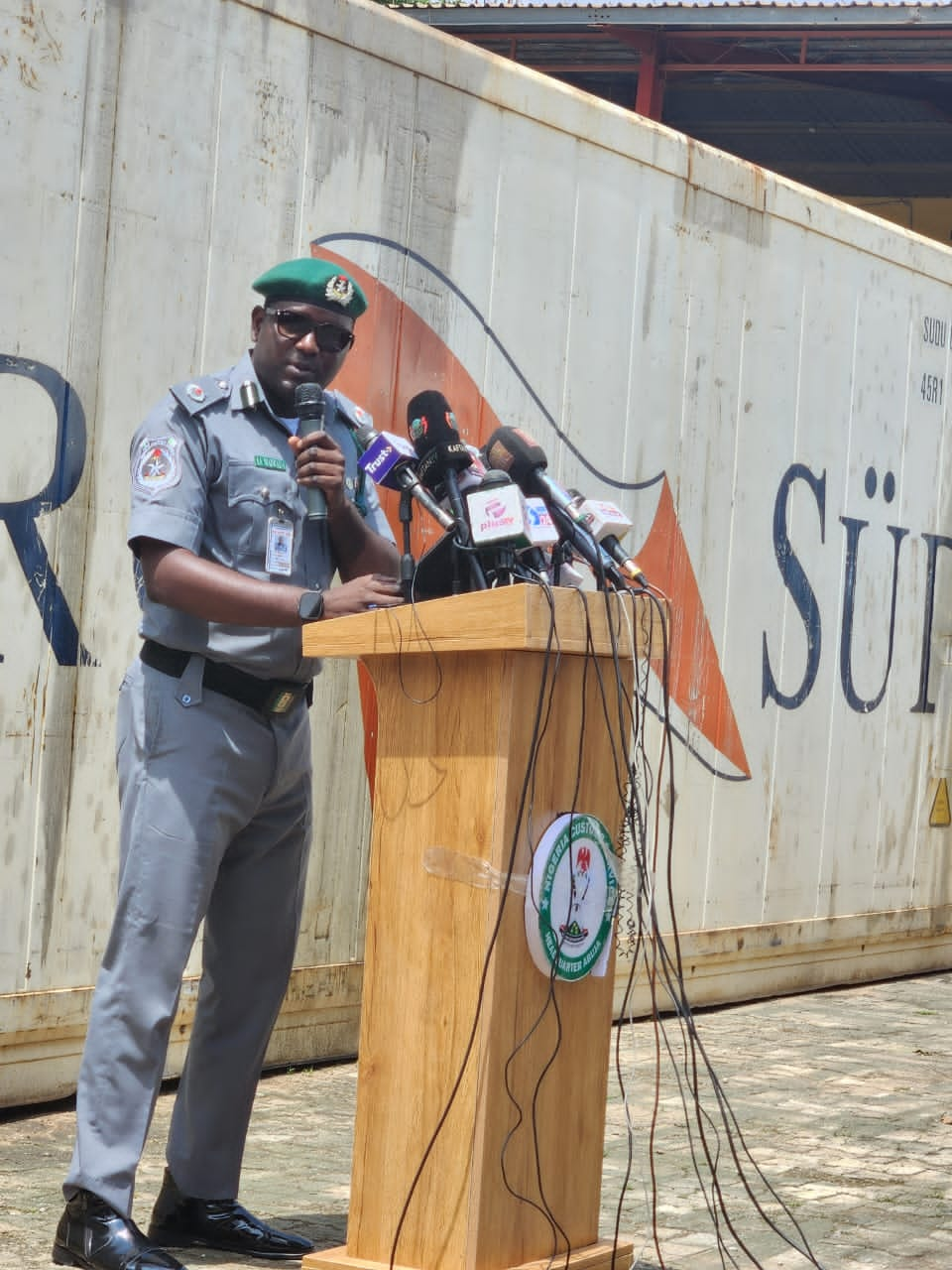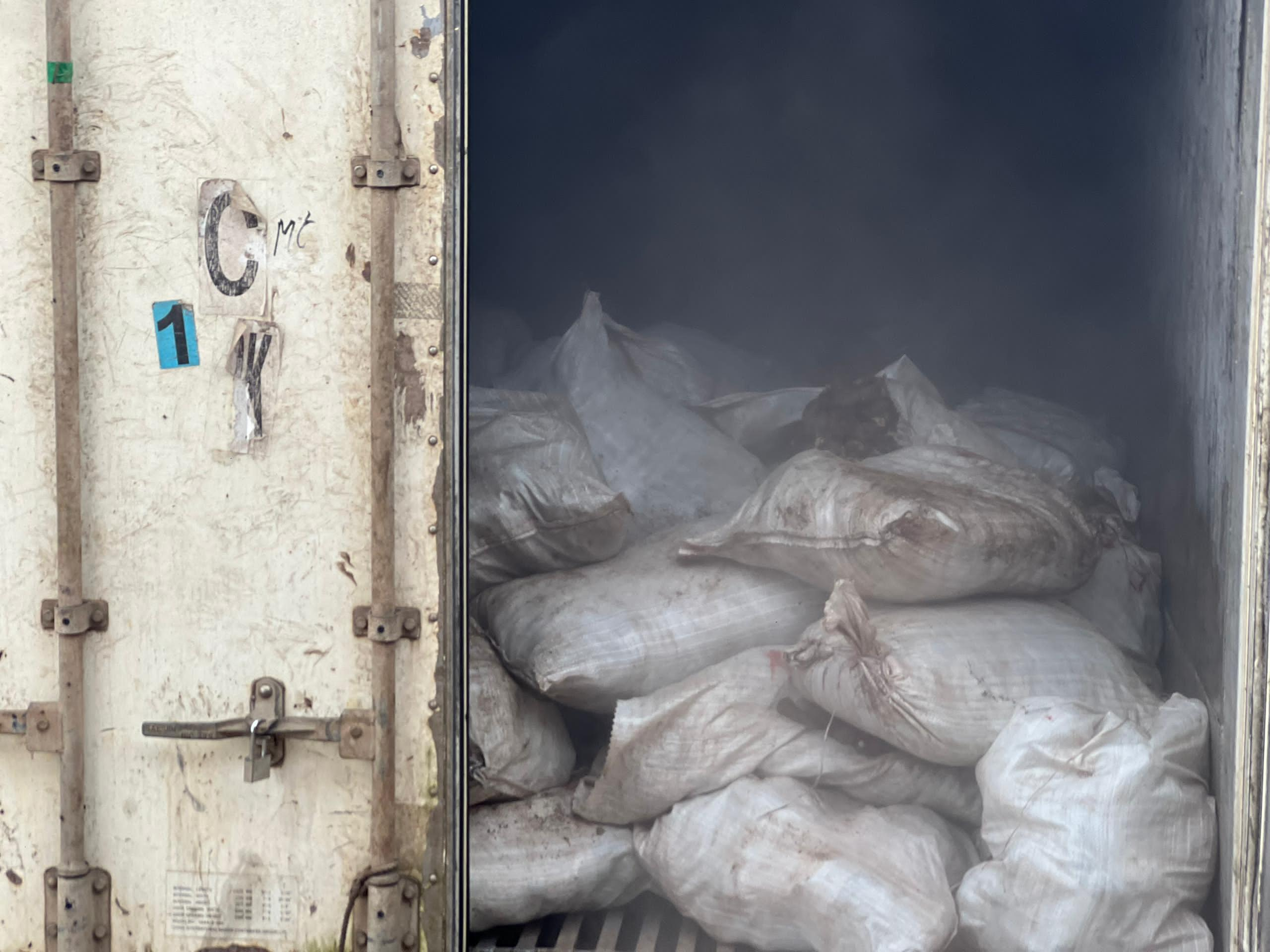Listeners:
Top listeners:
-
play_arrow
104.9FM Best rock music demo
-
play_arrow
Demo Radio Nr.1 For New Music And All The Hits!
-
play_arrow
Demo Radio Techno Top Music Radio
-
 play_arrow
play_arrow
Police Commissioner Launches Weapon and Riot Control Training for FCT Officers Democracy Radio
By Oluwakemi Kindness


The Nigeria Customs Service has intercepted a 40-foot container filled with over 10,600 donkey genitals, in what officials describe as one of the country’s most significant wildlife trafficking seizures to date.
The container was incepted along the Kaduna–Abuja Expressway on 5 June following intelligence-led surveillance by officers from the Customs Intelligence Unit and its Special Wildlife Office.
Speaking at a press briefing in Abuja on Thursday, Comptroller General of Customs, Adewale Adeniyi, represented by Customs National Spokesperson, Abdullahi Maiwada, said the seizure highlights the scale and persistence of illegal wildlife trade through Nigeria’s transport corridors.
“This interception confirms the ongoing exploitation of Nigeria’s routes by transnational wildlife trafficking networks,” a senior official said.
The seized items were handed over to the National Environmental Standards and Regulations Enforcement Agency (NESREA) for further investigation and enforcement action.
Expanding Crackdown
Between December 2024 and June 2025, Nigeria’s Customs Service recorded seizures of 6,087kg of pangolin scales, 157 live African grey parrots, 20 green parrots, 4 pangolins, and 16 zebra skins, among other species. Officials also reported recovering 37 taxidermy specimens and 4.15kg of processed ivory.
At least 10 individuals linked to various trafficking networks have been arrested, with one conviction already secured and several other cases ongoing in court.
The Special Wildlife Office, established to tackle the illegal trade in endangered species, works in collaboration with national and international partners including the Nigeria Police, NESREA, INTERPOL, and NGOs such as Focused Conservation and the Wildlife Conservation Society.
National Security Threat
Maiwada said wildlife trafficking is not only an ecological concern but is increasingly associated with organized crime, including money laundering, arms smuggling, and illicit financial flows.
“This is more than an environmental issue. It is a threat to national security and the rule of law,” the Customs spokesperson said.
The Nigeria Customs Service noted that it is investing in digital forensics, surveillance technologies, species identification, and cross-border enforcement strategies to combat the trade. Several officers have also received specialised training to detect and investigate wildlife crimes.
Community outreach campaigns are ongoing across regions vulnerable to wildlife exploitation, with the aim of encouraging public reporting and cooperation.
Commitment to CITES
The Customs Service reaffirmed its commitment to enforcing Nigeria’s obligations under the Convention on International Trade in Endangered Species of Wild Fauna and Flora (CITES) and the Nigeria Customs Service Act 2023.
Officials urged members of the public, especially those in border areas and logistics hubs, to report suspicious activities involving wildlife products.
“Our goal is to safeguard Nigeria’s biodiversity for future generations,” said the head of the Special Wildlife Office. “But we cannot do it alone. It requires vigilance, collaboration, and a shared commitment to justice.”
Written by: Democracy Radio
#customs #DemocracyRadio #NCS #Wildlife
Copyright Democracy Radio -2024


